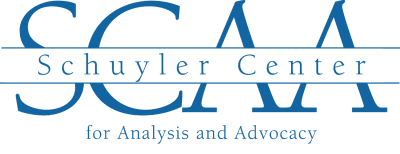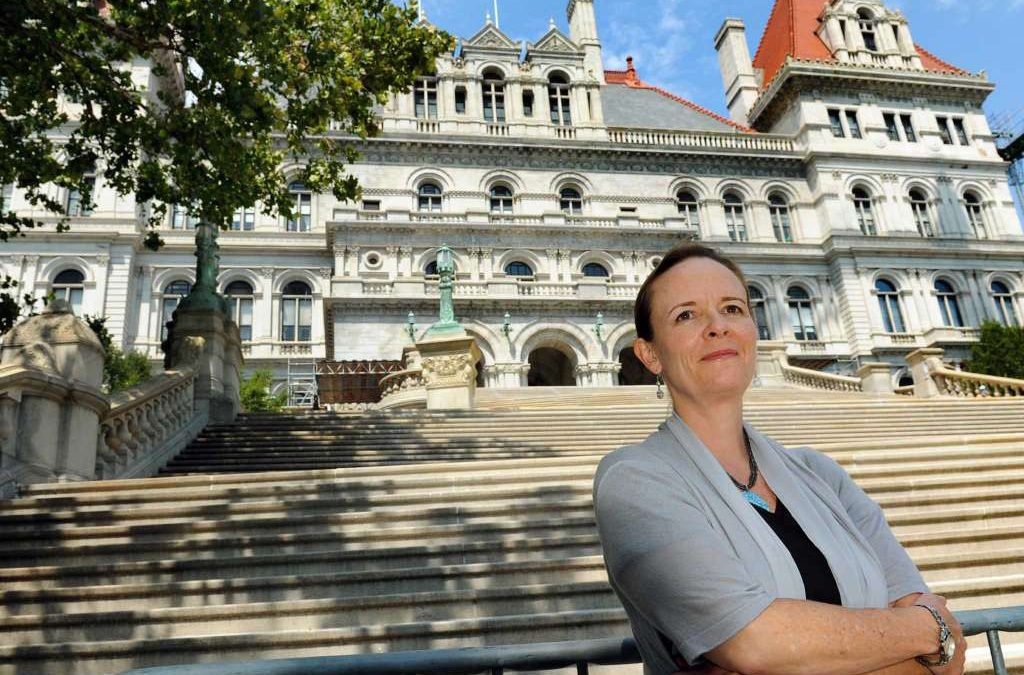New York’s 2016 legislative session was a mix of historic wins for New York children and families, and deeply disappointing losses. Most of the big wins came during budget, including Paid Family Leave, which will allow working families to care for newborns or ill family members without risking job loss or losing all pay, and a phased-in hike to the minimum wage, which will pull thousands of New York children and families out of poverty. Another victory for New York children achieved during budget was allocation of an additional $1.5 million for the Foster Youth College Success Initiative (bringing the total to $3 million), which will help more youth in foster care pursue higher education.
The post-budget legislative session saw another important achievement for New York families with the State’s passage of a package of bills to fight the heroin/opioid epidemic. These bills will expand treatment beds and increase program slots for those recovering from opioid use disorder. They will also extend a program of wrap-around services—which provide critical, holistic support to individuals in recovery.
These important victories threaten to be overshadowed by the losses. Once again, the State failed to pass legislation to raise the age of criminal responsibility for juvenile offenders. In fact, raising the age of criminal responsibility did not even make it onto the Governor’s list of priorities this year; With this failure, New York is left as one of only two states—along with North Carolina—to automatically treat all 16- and 17-year-olds as adults in our criminal justice system. Nor did the State advance legislation that would have increased the housing subsidy for housing-insecure families involved in the child welfare system and youth who have aged out of foster care. This legislation would also have allowed youth aged out of foster care to have roommates, and would have increased the upper age limit to 24 so that youth who age out of foster care at 21 could avail themselves of the subsidy for 3 years. The failure to enact this sensible legislation means that the housing subsidy remains at the rate set in 1988 (at $300 per month), and continues to leave former foster youth at high risk of homelessness. The opioid legislative package, while an important step forward, failed to make an investment focused on the unique and intersecting treatment, recovery and child well-being needs of pregnant and parenting opioid users and their children. This is a serious failure because with timely access to effective, family-centered treatment programs, parents are much more likely to recover, and children are much more likely to remain safe with their families. Any successful strategy to fight this epidemic must feature such programs.
As a more general matter, the State has continued to underinvest in programs proven to help families and children thrive, and to create cost-savings for the State in the long-term. For instance, the State decreased its funding for evidenced-based home visiting as compared to last year, notwithstanding that this intervention has been proven time and again to improve outcomes for children in the areas of health, education, child welfare, and to strengthen families. What is more, these programs are cost effective and yield savings for years to come by reducing children’s need for costly health care, decreasing need for child welfare and educational interventions, and increasing family economic stability. The final budget also failed to include any new funding for child care subsidies even as the State is faced with implementing new, federally-mandated regulations under the federal Child Care and Development Block Grant (CCDBG) Act, which will likely cost at least $190 million annually. Accordingly, the budget contained no funds to improve access to child care for low-income families and inadequate funding to support implementation of the new CCDBG Act regulations. This means that thousands of New York parents will be prevented from pulling their families into economic security for lack of affordable quality child care.
Looking ahead, Schuyler Center will continue to work with our partners and friends to shine a light on the unmet needs of New York families and children, including family-oriented substance abuse treatment, family strengthening interventions, quality education and child care, and family-friendly workplace supports. It is true that the solutions to some of the problems facing New York families—like poverty, substance abuse, and poor mental health—can be complicated and not amenable to quick fixes. But, New York knows how to mitigate these problems. This State—rich in talent, expertise, and resources—could launch a groundbreaking campaign to fully invest in proven programs that would give all the State’s children a fair opportunity to thrive. All that is needed are leaders with the will and courage to make real long-term investments in New York families.
Kate Breslin
President & CEO
Schuyler Center for Analysis & Advocacy[/vc_column_text]


Recent Comments